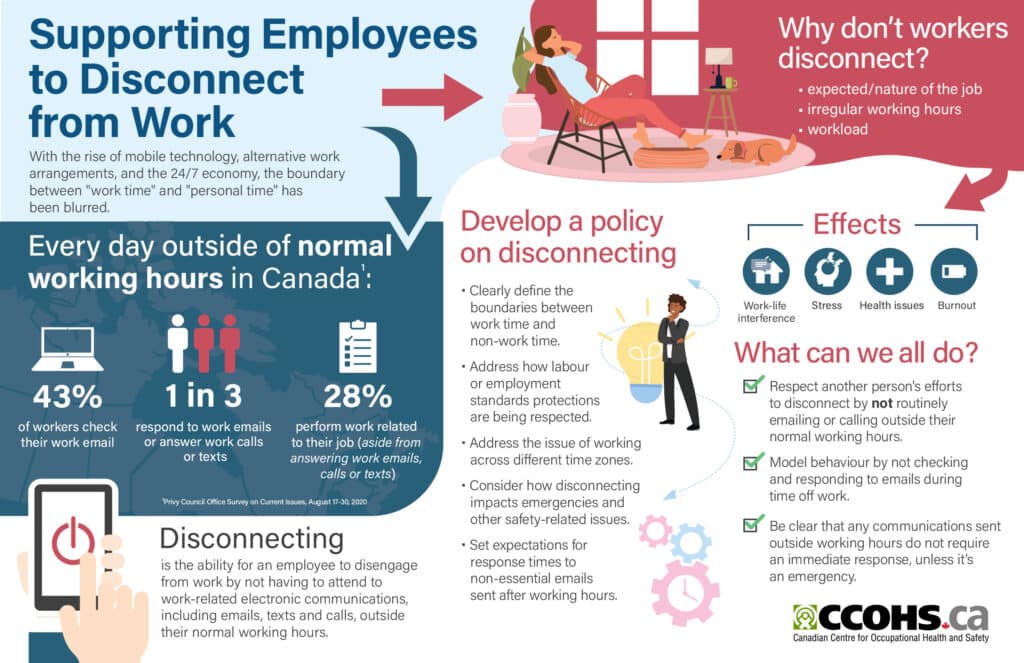How to disconnect and create better work-life balance
Many people carry their work everywhere they go. Mobile technology is just one more thing that is making the boundaries between work and personal life increasingly blurry. A survey by the Privy Council of Canada found 43% of employees frequently check emails during off hours, one in three respond to work-related emails and texts, and 28% engage in work tasks outside their designated work hours. If you work in healthcare, you are not surprised by these statistics.
Our culture glories being busy and urgency, reinforcing the idea that constant work availability is expected by supervisors and in some cases tied to employees’ self-worth. These ongoing intrusions on personal time are really counter productive. They have negative impacts for employees’ mental and physical health, can lead to burnout, and decrease our ability to be creative in our work.
One effective strategy employers can take is a clear and comprehensive policy that sets expectations for work-life balance around communications. This policy should have clear guidelines for after-hours communication and the extent to which employees are expected to be available outside of work hours. By setting these boundaries, employers and supervisors empower their employees to disconnect without worry and fear. The most important aspect of achieving success with this type of policy is leaders ensuring they are following the policy themselves.
Employers can further foster a culture that values downtime by:
- Actively urging employees to take breaks and recharge
- Encouraging the use of vacation days
- Creating flexible work arrangements
- Promoting a healthy work pace
Creating this kind of culture can go a long way in preventing burnout and promoting overall wellbeing. A positive work environment that respects and supports personal time encourages employee loyalty and long-term productivity.
The benefits of downtime have so many positive ripple effects. Time away from work allows employees to recharge, enhancing their overall job satisfaction and creativity. Time way also allows for more quality time with family and friends. Building stronger relationships outside of the office creates joy and relaxation that leads to improved mental and physical health, which, in turn, positively impacts job performance. A win for everyone!
Here is what some of the SWITCH BC team does to help prevent work from intruding on people’s personal time:
“I encourage the team to take breaks and set work hours that support their home lives. When members of the leadership team go on vacation, I confirm who is covering for them so they can fully disconnect. I lead by example by setting work hours that support my wellbeing and work.” – Victoria Schmid, CEO
“If I am working different hours than my team, I schedule emails, so they receive them when they are back on the block. When I am on holiday, I turn off work email notifications so the increasing email count doesn’t stress me out when I should be relaxing.”– Meribeth Burton, Communications Director
“I use an app in my email program that prompts me to start wrapping up my day and gives a heads up on the meetings and commitments of tomorrow. This supports me in ending on time and decluttering my mind creating more space before the evening.”– Caitlin Grisack, Manager, Psychological Health and Safety





